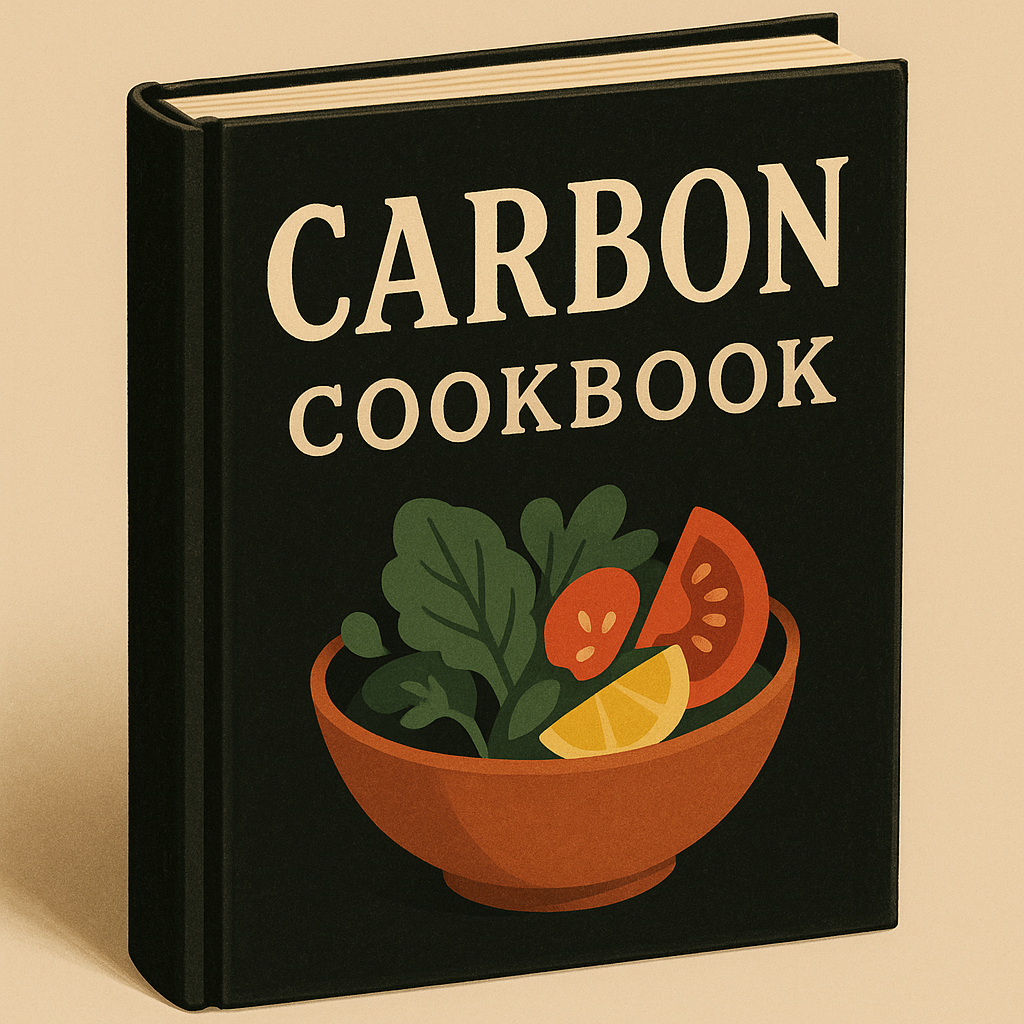Here is how the project went:
The Carbon Cookbook exceeded my expectations. I wasn’t sure how people would respond to the idea of cooking with scraps or changing habits, but I was surprised by how open and curious everyone became. The presentations sparked real conversations, and the posters definitely caught attention—I could tell when students started pointing them out and asking questions. Watching people enjoy food made from ingredients we’d normally toss felt like a turning point. Most rewarding of all was seeing how small changes—like saving veggie scraps or using lemons twice—actually reduced waste by about 15% during the X-Term. It felt empowering to know that something I started could shift how people view food, even in small ways.
Through this project I/we learned:
We learned that sustainability starts with awareness—but it grows through action. Many of us were shocked to learn that food waste produces more greenhouse gases than aviation. That one fact alone changed how we approached our meals. We also learned that reducing waste doesn’t have to be hard or boring. Through simple changes—like saving vegetable scraps, reusing squeezed lemons, and rethinking what’s “edible”—we discovered how creativity can transform habits. Most importantly, we realized that the kitchen is a powerful space for change. Whether we were cooking, eating, or just paying more attention to what went into the compost bin, we were learning to value food in a whole new way.
What I/we might change:
One thing we realized is that the impact could be even greater if more people were involved from the start. While the Culinary X-Term was a great space to begin, the project was limited to a small group. In the future, we want to make The Carbon Cookbook more inclusive—inviting students outside of the program to contribute ideas, participate in challenges, and help lead new initiatives. That’s already in motion: next year, we plan to start a student-led club so anyone interested in food, sustainability, or environmental change can take part. The more voices we bring in, the more creative and wide-reaching this movement can become.
My/our favorite part of this project was:
My favorite part of this project was watching people enjoy dishes that were made from ingredients we would normally throw away. There was something incredibly rewarding about turning scraps into something delicious—and seeing others genuinely surprised by how good it tasted. It felt like the message was landing not through a lecture, but through a shared experience. I also loved the moments when people stopped at the posters or reacted with disbelief when I told them about food waste emissions. That mix of curiosity, learning, and joy reminded me why I started The Carbon Cookbook in the first place.
Some tips, tricks or fun facts about the project:
Did you know that food waste produces more greenhouse gases globally than the entire aviation industry? That blew our minds—and motivated us to act. And here’s a simple trick we loved: Save your vegetable peels and scraps in a freezer bag throughout the week. When it’s full, boil them into a delicious, zero-waste vegetable broth. We even reused squeezed lemons to make lemonade—twice the flavor, zero the waste!
